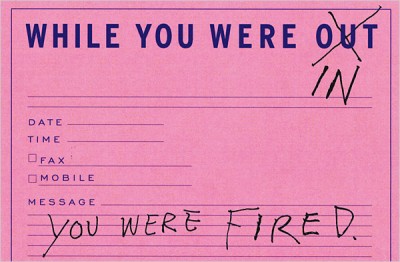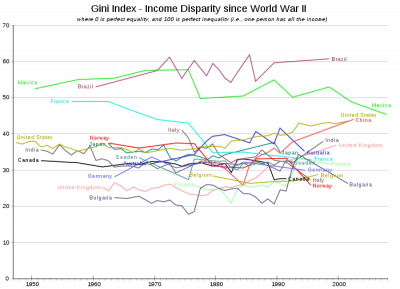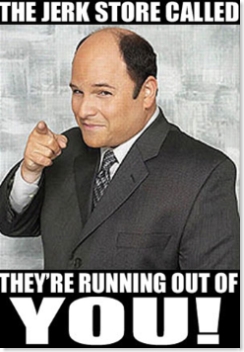
Good jobs, that is. Not to be a cassandra, but I have concerns about the structure of the economy. History has shown that the high standard of living in late-Renaissance Venice wasn’t sustainable [*]. While the relatively expensive goods of Venice were often of high quality, cheaper, mass-market goods produced in Britain, France, and the Netherlands were gaining in popularity. Will the US suffer from the same fate? In other words, are the high wages and standard of living in the US sustainable, economically? Robert Reich has a gloomy outlook on his blog::
“But here’s the real worry. The basic assumption that jobs will eventually return when the economy recovers is probably wrong. Some jobs will come back, of course. But the reality that no one wants to talk about is a structural change in the economy that’s been going on for years but which the Great Recession has dramatically accelerated.
Under the pressure of this awful recession, many companies have found ways to cut their payrolls for good. They’ve discovered that new software and computer technologies have made workers in Asia and Latin America just about as productive as Americans, and that the Internet allows far more work to be efficiently outsourced abroad.
This means many Americans won’t be rehired unless they’re willing to settle for much lower wages and benefits. Today’s official unemployment numbers hide the extent to which Americans are already on this path. Among those with jobs, a large and growing number have had to accept lower pay as a condition for keeping them. Or they’ve lost higher-paying jobs and are now in a new ones that pays less.”
I think he might be on to something and I tend to be an optimist. If this were 1992, I’d say we’re going to grow out of the recession the US was in back then. Innovation, efficiency, and productivity increases would be part of the upswing in the ever-present business cycles. But, are we in a different economic situation? Have we maxed-out efficiency? What about innovation? Will we still be competitive in that arena?
I have two main concerns. One is of industrial organization and the other is of income inequality, which I believe are inter-related.
- Industrial organization. In the US, smaller businesses are expected to create the most new jobs, but the deck is stacked against them, which is also a political and policy issue. There’s a pressure towards increased scale and size. Larger enterprises may be more efficient, but often are less innovative, categorically, due to constraints on “dynamic capabilities” {ability to innovate, learn, or continuously reposition itself more effectively than its rivals} and disincentives in the form of disruptions to current income streams {e.g., pharmaceuticals selling several profitable on-patent drugs in a category of drugs having little incentive to develop and market a “cure” for a particular disease in a new category of drugs. Hence “incremental” innovations of slight modifications and new patents based on them.}
- Income distribution. I feel that over time, the pressure towards increased the scale of organizations will put downwards pressure on wages and the standard of living for most employees. Why? If industries are dominated by a few players there will be a tendency towards oligopsony {few “buyers” and many “sellers”} in labour markets. Employees will have less bargaining power because the few employers will tend to tacitly collude. If global competition inhibits growth, there will be further pressure to cut wages and/or outsource.
The feather in the US’s cap is human capital talents and a large skilled labour pool, but these matter the most in innovative and high value-added firms. If the US starts to lose its innovative edge, there will be less demand for skilled workers and managers. More income inequality. While hardly definitive, the gini coefficient measures this::

In the US, the gini is on the rise, indicating a growing gap between the wealthy and poor. What would be really telling is to examine what’s happening to the middle class over time, i.e., the shape of the Lorenz curve}. I think for the vast majority of Americans, there may be more diminished expectations in store. The top 2% have no worries.
So, I agree with much of what Reich has to say. The goal isn’t just jobs, but good paying ones. In my opinion, part of this in the private sector {as opposed to public sector efforts, such as stimulus spending} is more basic R&D that fuels innovation and more entrepreneurship, which will require policies to support it.
Twitterversion:: #RobertReich blogs on jobs in US. Given his take, are big firms&lack of innovation a big part of problem? #ThickCulture http://url.ie/3f80 @Prof_K
Song:: The Bleeding Heart Show-The New Pornographers



